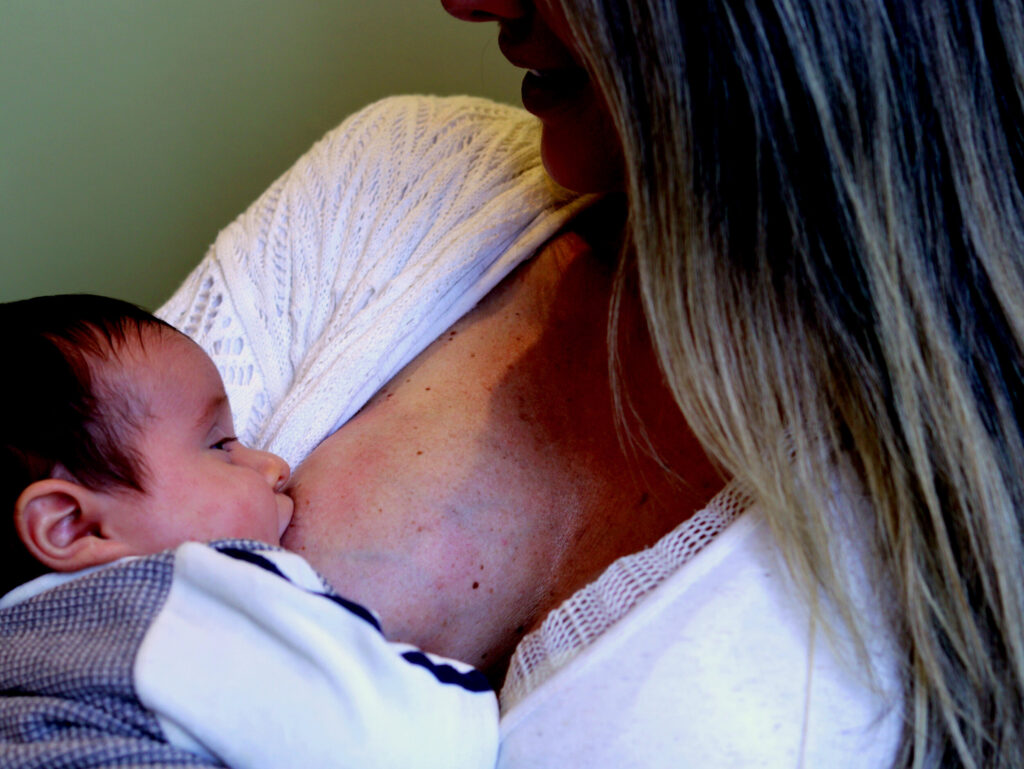
Some mothers who have stopped breastfeeding may want to try to start again. Making milk again is possible. This process is known as relactation. It takes time and works for many, although you may not establish the level of milk production to exclusively breastfeed. Before you start to prepare your body to relactate, it is important to think about the reasons that you stopped lactating (making milk). Remembering what was hard and discuss that with your supports, including with an International Board Certified Lactation Consultant (IBCLC). Your team can help you plan and have the support you need.
Think about your needs. Having enough strength and energy is important. Eating healthy food and drinking plenty of water will help your body be strong. You should also review any medications that you are taking with your health care provider to make sure they are safe to take while making milk and that they won’t make it harder for your body to produce milk. For example, some birth control methods may have hormones that may decrease your milk production. Talk with your health care provider to learn more.
Relactation is a process for both you and your baby. You may be teaching your baby to nurse and find comfort at your breast, while your body begins to increase your milk supply. Increasing cuddle time and skin to skin time will be important during this time – and these caregiving practices always have benefits.
In relation to making milk, skin to skin contact stimulates the release of lactation hormones. Additionally, giving your breasts gentle massages, using your hands to mimic suckling (hand express) and using a breast pump (electric or manual) can help. It is recommended that you care for your breasts with these approaches 8-10 times in a day to encourage relactation. Having your baby at the breast to suckle often is also important. Some moms may choose to pump on one breast and feed the baby with the other breast at the same time.
It may take some time to start making milk again depending on when you made milk. Be patient and kind to yourself. You are a great mother and you are enough for your baby whether or not your breasts are able to make milk how you would like. Remember too that nurturing can occur at the breast whether or not that is the only nutrition your baby has.
Here are some good resources on relactation. This one is from UNICEF, this one is from La Leche League International and this one is from KellyMom.










